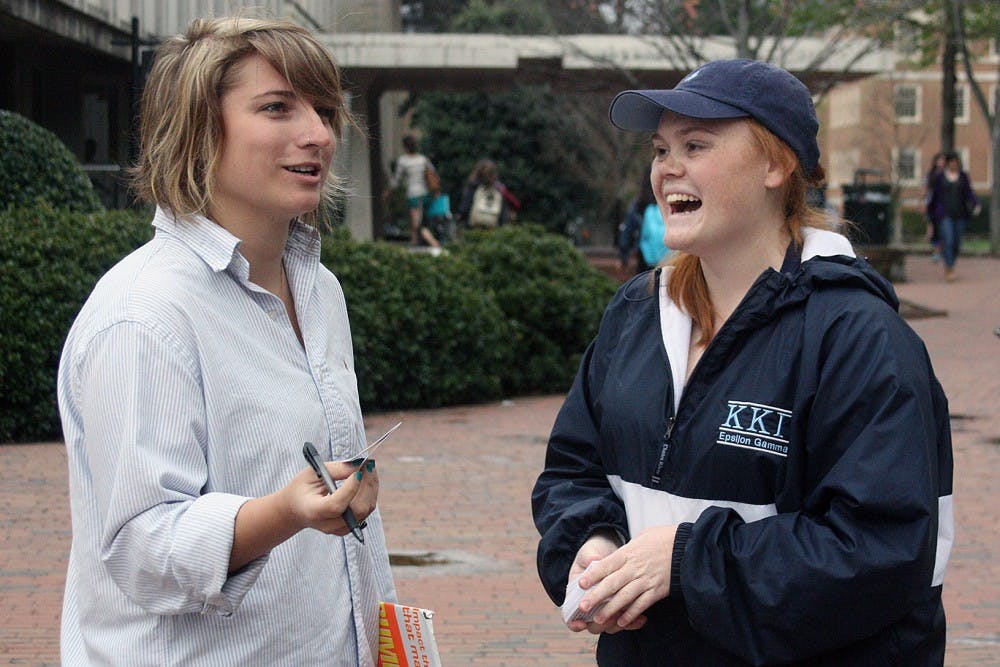But some worry that the new laws will keep people from the polls.
“The changes affect people pretty broadly,” said former N.C. Sen. Ellie Kinnaird, who represented Orange County.
Kinnaird has been working with groups across the state to spread the word about changes in voting laws resulting from the new voter identification law, which requires all voters to show valid photo IDs at the polls beginning in 2016.
In this year’s elections, poll workers will ask if a voter has ID, and, if not, they will provide the voter with information on how to obtain one before the 2016 election. Identification will not be required to vote in either the 2014 primary or midterm election.
“Students usually don’t vote in primaries, but the change really affects students because they’re busy and then all of a sudden it’s time for the election,” Kinnaird said.
Parker said the changes in the law significantly impact student voter turnout.
“It almost seems to me like they were designed to (decrease student turnout). If you look at the changes, the biggest one is the elimination of same-day voter registration,” he said. “That is hugely beneficial to students.”
In the past, students would often vote at a precinct that was not theirs by casting a provisional ballot because they either didn’t know what the right precinct was or were unable to get to it on Election Day, he said. Now, provisional ballots are not guaranteed to be counted in voting totals.
“My understanding is that most of the time, and at the very least when it matters, the state would count the provisional ballot,” he said. “Now, you’re out of luck.”
The new early voting site near UNC’s campus is located at North Carolina Hillel on West Cameron Avenue.
Bob Hall, executive director of the left-leaning organization Democracy N.C., also said the regulations will likely influence students.
“Young people are procrastinators. We need to ring the bell loud enough to get their attention now,” he said.
To get the day's news and headlines in your inbox each morning, sign up for our email newsletters.
Hall said in the 2012 general election, 97,000 North Carolinians walked into early voting locations, registered and voted all in the same day. Of those who took advantage of registering during early voting, 44 percent were younger than the age of 30.
“In a primary, fewer people tend to vote, so your voice can have a larger impact,” Hall said.
Dinesh McCoy, a junior global studies major , changed his address during the registration drive. He said while the process was simple, the earlier deadline was easy to overlook.
“It’s a pretty easy fix, but you can be caught off guard,” he said.
Democracy N.C. set up a website, ncelectionconnection.com , to answer questions about the election process.
But Susan Myrick, an election policy analyst at the right-leaning Civitas Institute, said she does not believe that taking away same-day registration will have an effect on overall turnout.
“(Same day registration) didn’t increase voter turnout when it started, so I don’t think it will decrease voter turnout,” she said. “It increased early voter turnout.
“You can see the numbers growing each year because people liked the convenience of early voting, but you never saw the overall numbers increase.”
state@dailytarheel.com



